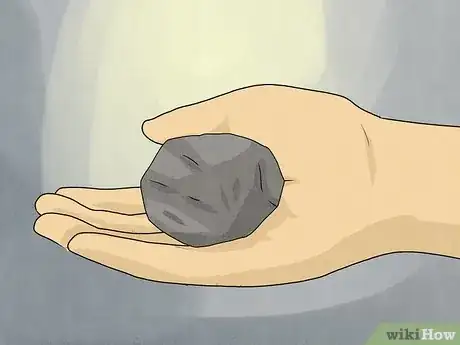This article was co-authored by Jay Reid, LPCC and by wikiHow staff writer, Dan Hickey. Jay Reid is a Licensed Professional Clinical Counselor (LPCC) in private practice in San Francisco, CA. He specializes in helping clients who have survived a narcissistic parent or partner. Treatment focuses upon helping clients identify and challenge self-diminishing beliefs as a result of narcissistic abuse. Jay holds a BA in Psychology from the University of Pennsylvania and an MS in Clinical Psychology from Penn State University.
There are 11 references cited in this article, which can be found at the bottom of the page.
wikiHow marks an article as reader-approved once it receives enough positive feedback. In this case, several readers have written to tell us that this article was helpful to them, earning it our reader-approved status.
This article has been viewed 138,893 times.
Narcissists are calculating, controlling individuals that don’t get thrown off very often. It’s not impossible to confuse one, though—when you take away their ability to manipulate, they often don’t know how to react and will freeze or panic with surprise. We’ve put together a list of psychology-backed ways to disarm and confuse a narcissist to avoid arguments and help you establish boundaries with one. If you’re ready to combat their egocentric behavior, read on!
Steps
Expert Q&A
-
QuestionWhy do narcissists suddenly act nice?
 Jay Reid, LPCCJay Reid is a Licensed Professional Clinical Counselor (LPCC) in private practice in San Francisco, CA. He specializes in helping clients who have survived a narcissistic parent or partner. Treatment focuses upon helping clients identify and challenge self-diminishing beliefs as a result of narcissistic abuse. Jay holds a BA in Psychology from the University of Pennsylvania and an MS in Clinical Psychology from Penn State University.
Jay Reid, LPCCJay Reid is a Licensed Professional Clinical Counselor (LPCC) in private practice in San Francisco, CA. He specializes in helping clients who have survived a narcissistic parent or partner. Treatment focuses upon helping clients identify and challenge self-diminishing beliefs as a result of narcissistic abuse. Jay holds a BA in Psychology from the University of Pennsylvania and an MS in Clinical Psychology from Penn State University.
Licensed Professional Clinical Counselor When you start to pull away, narcissists will try to suck you back in. They may suddenly be really nice to you to bait you. However, they'll go back to their old ways after you get comfortable again.
When you start to pull away, narcissists will try to suck you back in. They may suddenly be really nice to you to bait you. However, they'll go back to their old ways after you get comfortable again.
Warnings
- Challenging a narcissist’s lies can lead to narcissistic rage (intense anger or aggression in response to a setback that breaks their illusion of superiority). They may become verbally or even physically abusive during this time.[11]⧼thumbs_response⧽
- Narcissistic collapse happens when a narcissist doesn’t receive their narcissistic supply for long periods of time. They may become increasingly anxious or depressed, engage in self-harm, fly into a narcissistic rage, or exhibit erratic and unusual behavior.[12]⧼thumbs_response⧽
References
- ↑ https://www.healthyplace.com/personality-disorders/malignant-self-love/narcissistic-routines
- ↑ https://www.psychologytoday.com/us/blog/5-types-people-who-can-ruin-your-life/202109/4-tips-saying-no-narcissist
- ↑ https://www.psychologytoday.com/intl/blog/peaceful-parenting/201810/how-bypass-narcissist
- ↑ https://www.insider.com/how-to-use-gray-rock-method-narcissist-no-contact-2019-6
- ↑ https://www.psychologytoday.com/intl/blog/peaceful-parenting/201810/how-bypass-narcissist
- ↑ https://upjourney.com/how-to-communicate-with-a-narcissist
- ↑ https://upjourney.com/how-to-make-a-narcissist-fear-you
- ↑ https://www.psychologytoday.com/us/blog/ambigamy/202002/how-humiliate-absolute-narcissist
- ↑ https://www.psychologytoday.com/us/blog/communication-success/201705/how-talk-narcissist-about-being-narcissistic
- ↑ https://www.healthyplace.com/personality-disorders/malignant-self-love/narcissists-reaction-to-deficient-narcissistic-supply
- ↑ https://www.psychologytoday.com/us/blog/communication-success/201807/8-signs-narcissistic-rage
- ↑ https://psychcentral.com/disorders/narcissistic-personality-disorder/narcissistic-collapse#narcissistic-rage








































































